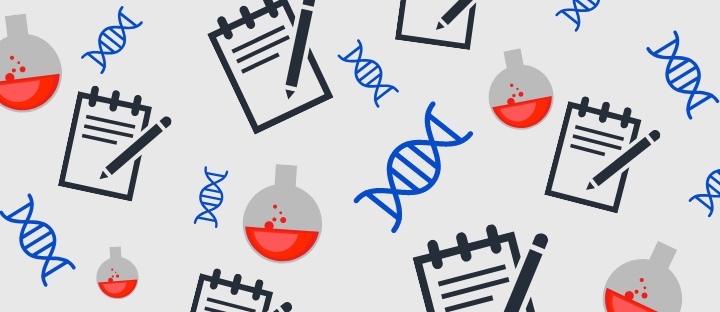#ScienceSaturday posts share exciting scientific developments and educational resources with the KAND community. Each week, Dr. Dylan Verden of KIF1A.ORG summarizes newly published KIF1A-related research and highlights progress in rare disease research and therapeutic development.
KIF1A-Related Research
Clinical exome sequencing uncovers genetic disorders in
neonates with suspected hypoxic–ischemic encephalopathy:
A retrospective analysis
Brain injuries and developmental disorders can be difficult to distinguish based on symptoms alone; an area of the brain that doesn’t develop normally may behave very similarly to one that is injured. As we’ve recently discussed with cerebral palsy, genetic sequencing for patients with brain injuries may uncover underlying genetic mutations. In this week’s study, researchers at the Baylor College of Medicine performed sequencing on patients with suspected hypoxic-ischemic encephalopathy to identify disease-associated mutations.
Let’s break down that term: Hypoxic refers to conditions where tissues and cells don’t get enough oxygen; Ischemic refers to restricted bloodflow; and encephalopathy describes any disorder of the brain. In cases of hypoxic-ischemic encephalopathy (HIE), the developing child’s brain is damaged by an event of restricted bloodflow and loss of oxygen.
Because the brain region injured may vary, HIE can cause a wide variety of symptoms, and patients with other underlying disorders may be diagnosed with HIE despite the lack of a clear event. Genetic mutations may cause symptoms that look similar to HIE, or in some cases cause HIE due to deficits in metabolism or related functions.
In this study, researchers sequenced 24 patients who had previously received HIE diagnoses; they identified 6 disease-associated mutations, as well as 6 patients with mutations of uncertain significance. One patient had the well-characterized E253K KIF1A mutation, highlighting the importance of increased screening for rare disease patients.
Rare Roundup
Disability events charity ‘utterly life-changing’
Holidays and events are major parts of childhood, but it can be difficult for rare disease families to participate in events where their needs aren’t accounted for. In County Durham, England, a charity called Little SENDsations co-founded by KAND parent Hayley Clark creates weekly inclusive holiday sessions for children with disabilities and their parents, creating and fun environment where children to connect and build community with one another. This is an incredible example of ways that people across rare disease communities can lift one another up and help kids live their best lives.

